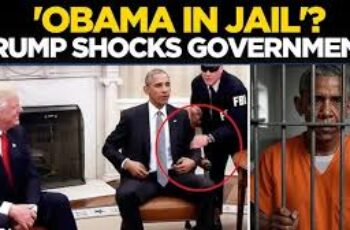Amid rising international tensions, U.S. President Donald Trump has redrawn his country’s defense policy maps in an unconventional way, by deciding to change the name of the U.S. Department of Defense to the Department of War. This move has sparked widespread controversy about Washington’s future directions, especially in the Caribbean region and Venezuela.
The decision, which Trump signed into effect via an executive order and which the U.S. Congress is preparing to support through a bill, comes in the context of what the American president has described as dangerous global shifts, as he believes the world is approaching a “phase of major confrontation between the Eastern and Western blocs.”
In previous statements, Trump said, “Why defend when we can attack?” reflecting his philosophy of using power as a primary tool in foreign policy.
Military Buildup in the Caribbean
A report by the American newspaper Politico revealed that a draft of the new defense strategy points to a shift in U.S. policy. It prioritizes domestic and regional missions over directly confronting adversaries like China and Russia. This reflects the possibility of isolating regional fronts, specifically in Venezuela, which Washington considers part of its “backyard.”
As part of its military buildup, Washington has dispatched a large naval force to the southern Caribbean. This force includes missile destroyers, a nuclear submarine, and reconnaissance aircraft. The U.S. also intends to deploy 10 F-35 fighter jets to Puerto Rico, north of Venezuela.
Trump vowed to shoot down any Venezuelan aircraft that poses a threat to U.S. forces, asserting that this move is part of the war on drug networks. This follows an incident where 11 people were killed after a boat, which Washington claimed was smuggling drugs, was targeted.
However, the heightened tension goes beyond the issue of drugs. Analysts suggest that the United States’ primary objective is to bring about a change in government in Caracas.
In this context, U.S. Secretary of Defense Pete Hegseth described the operation as a reflection of the U.S. military’s readiness to support this shift. Meanwhile, Venezuelan President Nicolás Maduro considered the American buildup a pretext for overthrowing his regime and announced a general mobilization of the Venezuelan army in preparation for war.
In a statement , A professor of Political Economy and International Relations confirmed that the name change from the U.S. Department of Defense to the Department of War reflects a global climate charged with escalation. He added, “The world is heading toward a confrontation between the Eastern and Western blocs, and every new world order is born from a major war.”
He explained that the American movements in Venezuela aim to restore influence in the regional sphere and prevent the Venezuelan regime from strengthening its ties with China and Russia. He pointed out that “the goal is not just to confront drugs, but to change the regime that is loyal to the Eastern bloc.”
He added, “Trump is seeking to impose America’s control over Venezuelan oil exports to prevent them from reaching China, a direct competitor.”
Analysts suggest that the U.S. historical experience with the “Bay of Pigs crisis” and Cuba during the Cold War is playing a role in shaping Washington’s current strategy toward Venezuela.
At the same time, it’s noted that Europe will not be a direct theater of conflict, as it was in World War II, making Ukraine and Venezuela potential fronts for proxy confrontations.
The professor continued: “Russia possesses significant military power, and no one can deny that, as does China, which has demonstrated its capabilities in regional conflicts. Therefore, the world is moving with extreme caution, and each side is seeking to embarrass the other and test its military and economic strength.”

